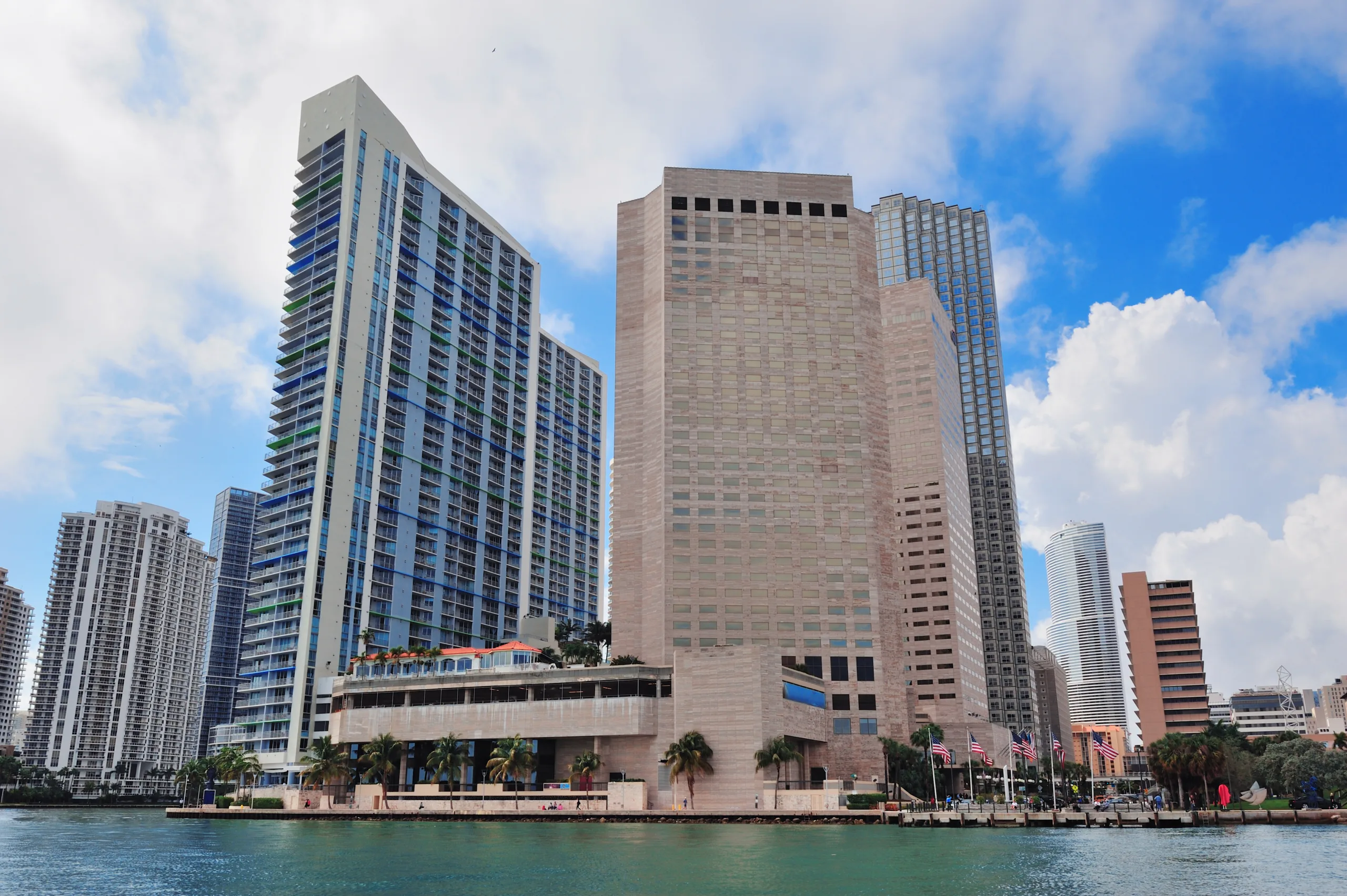Sternlicht Eyes Profit in Fed-Triggered Economic Storm
Billionaire real estate tycoon Barry Sternlicht sees opportunities amid rising interest rates, which he compares to a “Category 5 hurricane,” causing uncertainty in the commercial real estate industry over the Federal Reserve’s actions.
Together with

Good morning. Billionaire real estate tycoon Barry Sternlicht warns of industry challenges, likening them to a “Category 5 hurricane.” Hedge funds are swooping in to buy beaten-down REITs. Meanwhile, nonresidential construction spending is predicted to rise by 20% this year, marking a level not seen since before the Great Recession.
Today’s edition is brought to you by Xeal Energy. Discover the next generation of EV charging solutions for multifamily and commercial real estate properties.
Market Snapshot
|
|
||||
|
|
*Data as of 7/21/2023 market close.
👋 First time reading? Sign up here.
FISCAL STORM
Barry Sternlicht Warns of ‘Category 5 Hurricane’ Sweeping Through Commercial Real Estate

Billionaire commercial real estate tycoon Barry Sternlicht foresees opportunities arising from a steep increase in interest rates harming commercial real estate values. Likening the current scenario to a “Category 5 hurricane”, he underlines the industry’s turmoil due to uncertainty over the Federal Reserve’s next steps.
Fed’s policies Impact: Sternlicht blames the Federal Reserve’s late actions to slow the economy for the troubled real estate market, impacting property values significantly. He warns that over $40B of commercial office debt is set to mature next year, potentially threatening other assets like multifamily, industrial, and retail properties.
Starwood Capital’s struggles: Despite managing $115B assets, Starwood Capital is also grappling with surging redemption requests and a $212.5M mortgage repayment for an Atlanta tower. Sternlicht, however, views this downturn differently from previous ones, attributing it mainly to the Fed’s rate hikes to control inflation, causing unintentional harm to commercial real estate.
The Impacts on borrowing: As financing becomes more expensive and harder to acquire, landlords with floating-rate loans face potential high debt payments, while office vacancies increase in the era of remote work. Despite the demand for property types like apartments, warehouses, and hotels remaining strong for now, Sternlicht anticipates a change if a recession hits. Tight credit conditions are further hampering developers’ ability to start projects or refinance existing buildings.
The lender-borrower dynamic: Lenders, including Starwood, show hesitation in acquiring struggling assets, often choosing to restructure loans instead. On the flip side, Starwood, being a lender, has also experienced setbacks when borrowers abandon projects. Sternlicht predicts that with an estimated $1.4 trillion in commercial real estate debt due by the end of 2024, there may be a recurrence of the Resolution Trust Corp. scenario, referring to the government entity that liquidated assets of failing savings and loan associations in the late ’80s and early ’90s.
➥ THE TAKEAWAY
Opportunity amid challenges: Despite the difficulties, Sternlicht predicts new investment opportunities to arise. For instance, the recent failure of Signature Bank and subsequent sell-off of CRE loans by the Federal Deposit Insurance Corp. could offer potential deals for investors. Additionally, Sternlicht sees the residential real estate market as a promising area for investment, given the rising scarcity of housing and the relative costs of construction.
⏩ Forward this article by clicking here.
TOGETHER WITH XEAL ENERGY
Overcoming CRE’s EV Charging Reliability Challenge

Did you know that broken or nonfunctional chargers are one of the most common issues facing EV drivers today? Approximately 95% of problems can be root-caused by central network communication issues.
Xeal solved this problem and they built it for YOU.
Xeal’s self-reliant technology enables its network of chargers to operate all smart functionality (payments, access control, etc.) without reliance on a central network connection – an often fallible source of pain for you and your tenants.
When drivers arrive at a charger, they use their smartphone to tap the charger, and it works immediately; no need to rely on wifi or cellular connectivity.
Request Your Complimentary EV Portfolio Analysis to learn how easy it is to add reliable chargers to your property.
CAUGHT IN THE MIDDLE
Hedge Funds Go Head-to-Head Over Distressed Commercial Property Market
Hedge funds eyeing distressed real estate have closely observed the yearlong selloff. Now, they’re swooping in to buy beaten-down real-estate investment trusts (REITs), which were traditionally popular among individual investors.
The landscape: Commercial real estate is grappling with an unprecedented downturn due to a mix of factors – rising interest rates, a shift in work habits favoring remote work, and the scars left by the pandemic. Meanwhile, the stock market has been surprisingly bullish, making it difficult to find good investment opportunities. As a result, distressed investors are shifting their focus to REITs, particularly those with minimal office exposure that were affected by the overall market downturn.
REITs performance: According to industry group Nareit, REITs specializing in offices experienced a 10% loss (including price changes and dividends) from the beginning of the year until July 13. On the other hand, REITs focusing on retail properties saw a modest 3% return, while residential REITs performed better with a 13% return. However, all these returns lagged behind the broad S&P 500 stock index, which delivered an impressive 19% return during the same period.
Challenging market: Over the past two years, the market capitalization of Nareit’s widely followed REIT index has declined by approximately $200B, reaching $1.3T. Investors have been withdrawing money from REIT funds, impacting firms like Blackstone that capitalized on the REIT trend. Some mortgage REITs have faced challenges due to limited access to capital markets, prompting them to explore strategic options.
A tale of three mergers: Acquisition wars in the REIT market, particularly surrounding Diversified Healthcare Trust, have triggered investor concerns and uncertainty. Proposed mergers and takeover bids are creating a turbulent environment, impacting investor confidence and decision-making. Additionally, Mavik Capital’s planned merger with Western Asset Mortgage Capital faces competition from Angelo Gordon’s unsolicited takeover bid. A similar situation is unfolding with Diversified Healthcare’s proposed merger with Office Properties Income Trust, involving large fund managers.
➥ THE TAKEAWAY
Big picture: The entrance of big fund managers into the REIT scene has stirred up the market. As these players maneuver through mergers and acquisitions, small investors remain caught in the middle. Despite the turbulence, some investors have seen their holdings surge as the markets anticipate a win for the ‘no’ votes on controversial mergers. This saga underscores the influence of large fund managers’ decisions in reshaping the REIT market landscape.
⏩ Forward this article by clicking here.
Around the Web
📖 Read: Blackstone, founded in 1985, has grown into a $1 trillion money management giant, surpassing Goldman Sachs in market value. The competition among Wall Street giants continues.
🖥️ Watch: Boston Properties CEO, Owen Thomas, says that the perception of the commercial real estate sector is worse than reality. Additionally, he elaborates on the difficulties associated with revamping underperforming office structures.
🎧 Listen: On this episode of The FORT podcast, Sean Burton, CEO of Cityview, joins Chris to discuss land entitlement, the LA real estate landscape, and successful multifamily development traits.
CONSTRUCTION BOOM
Robust Growth in Nonresidential Construction: A Snapshot of 2023 and Outlook for 2024
Nonresidential construction spending is predicted to rise by 20% this year, marking a level not seen since before the Great Recession.
2023 growth and projections: This year is seeing robust gains in commercial, office, retail, and hotel construction spending, with double-digit percentage increases. Apart from public safety and religious projects, all sectors showcase strong projections for 2023. Notable growth is expected in institutional spending, health, education, and amusement and recreation, all predicted to increase by approximately 10%. AIA’s Chief Economist Kermit Baker indicates a possible moderation of this construction spending pace in the latter half of this year due to various economic factors.

Economic factors and 2024 forecast: Factors such as high interest rates, stricter bank lending, economic uncertainty, and construction labor constraints are expected to impact projects. Looking forward to 2024, a significant drop in numbers is expected according to a panel of economic forecasters. Overall spending on nonresidential buildings is predicted to rise just 2%, with a slight decline in the commercial sector, a modest increase in institutional facilities, and only 5.4% for the industrial sector.
Hot sectors: In the construction industry, three sectors are experiencing a significant boom: industrial, healthcare, and education.
🏭 Industrial – Fueled by the resurgence of domestic manufacturing in pharmaceuticals and plastics, the industrial sector is experiencing growth. As e-commerce slows, there’s a move toward automating current distribution centers.
🏥 Healthcare – Concurrently, healthcare construction is expanding, catalyzed by the pandemic and the aging population’s needs, projecting 10% growth this year and an extra 3% in 2024.
🏫 Education – Additionally, there’s an uptick in educational facility construction, driven by higher demand in colleges, universities, and primary schools, forecasting a cumulative increase of 10.5% in 2023 and 4.3% in 2024.
➥ THE TAKEAWAY
The bottom line: While nonresidential construction spending is surging, inflation-adjusted increases are much smaller and may not result in parallel economic or job growth. Despite industry-specific boosts from factors like post-pandemic reshoring and demographic changes, the rapid growth is expected to slow due to ongoing inflation battles. This creates a complex outlook for the sector’s future.
⏩ Forward this article by clicking here.
✍️ Daily Picks
-
Reddit comes for RE: WallStreetBets’ collective trading trend waned after 2021. Now, r/REBubble subreddit users express frustration over high housing prices and opt out of the market to reduce prices.
-
Back from the brink: During the pandemic, e-commerce surged, leading big-box retailers to shrink their physical stores. Now, some are reopening locations to rebuild their reputation.
-
Next big risk: Bloomberg recently asked three major investors about their biggest concerns over the next 5 to 10 years amid a world full of chaotic headlines. Here’s what they had to say.
-
Fewer refis: As financial landscapes shift, lenders are seeking alternatives to refinancing to handle maturing CRE loans, especially as more of these loans support properties in financial distress.
-
Best place for AI jobs: The San Francisco Bay Area is expected to be the top destination for AI jobs, especially in generative artificial intelligence, according to a new report by the Brookings Institution.
-
Hamptons of the South: Florida’s Scenic Highway 30A has quickly blossomed into a thriving hot spot. As a result, it’s escalating vacation rental prices attracting both seasoned and new visitors.
-
CalPERS’ annual returns: Negative returns on CRE affected the largest U.S. pension fund’s performance. Still, the California Public Employees Retirement System, with $462.8B assets, achieved a 5.8% YTD,
-
Westfield sells off: Developer Lowe and Sunbelt Investment Holdings acquired the Westfield Mission Valley mall in San Diego for about $290M. This follows Unibail-Rodamco-Westfield’s ongoing plan to sell its U.S. retail properties.
📈 Chart of the Day

Apartment sales plummeted in the first half of 2023, reaching their lowest point since 2011. This drop was mainly attributed to high interest rates and the mismatched pricing expectations between buyers and sellers. The number of units sold fell dramatically, declining by 62% compared to the peak in the first half of 2022, when the Federal Reserve imposed rapid rate hikes.
Additionally, it was 48% lower than the average sales volume in the first half of the past five years, according to MSCI Real Capital Analytics. Buyers are hoping for lower prices, but sellers are not motivated to sell at discounted rates.
What did you think of today’s newsletter? |
HIT THE INBOX OF 65K+ CRE PROFESSIONALS
Advertise with CRE Daily to get your brand in front of the Who’s Who of commercial real estate. Subscribers are high-income decision makers, investors, and C-suite executives always looking for their next investment, product, or tool.


















